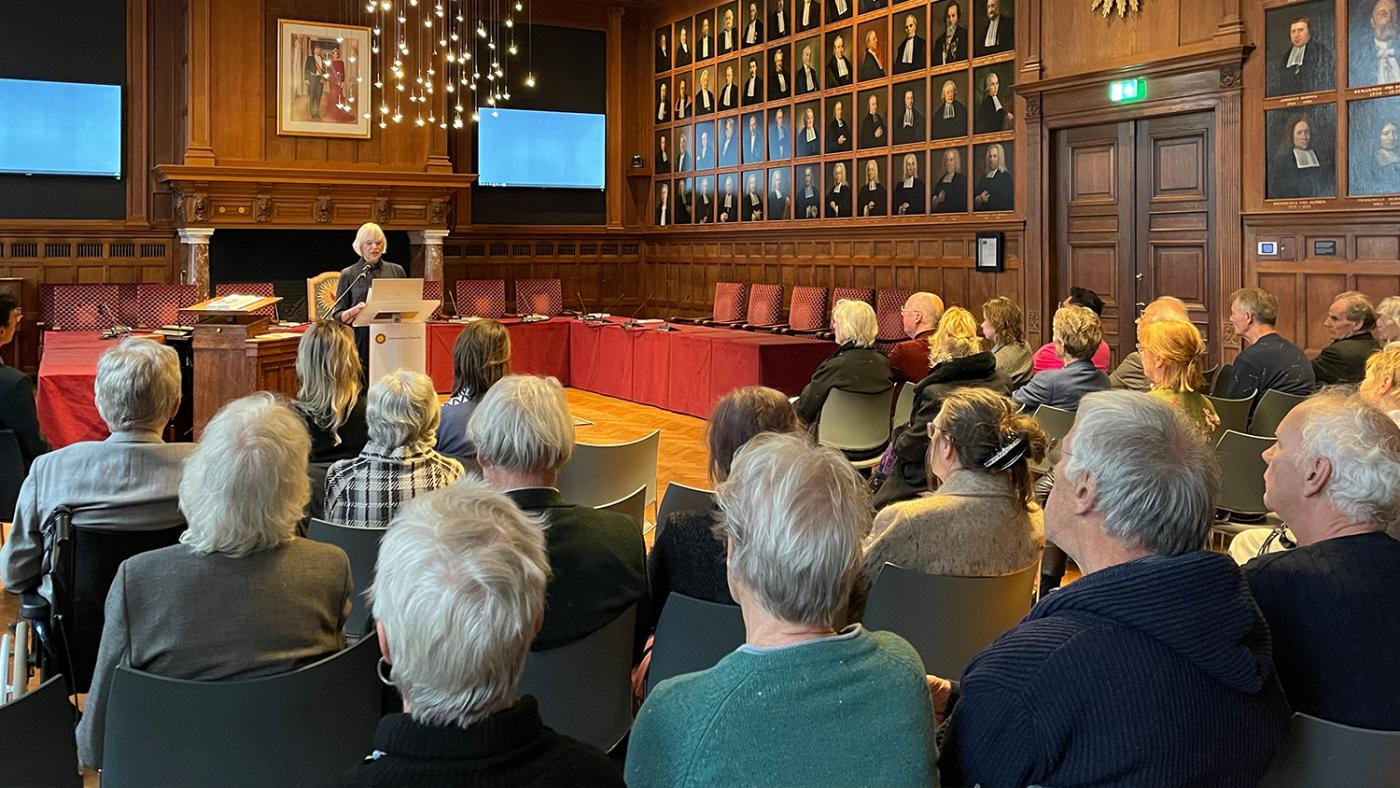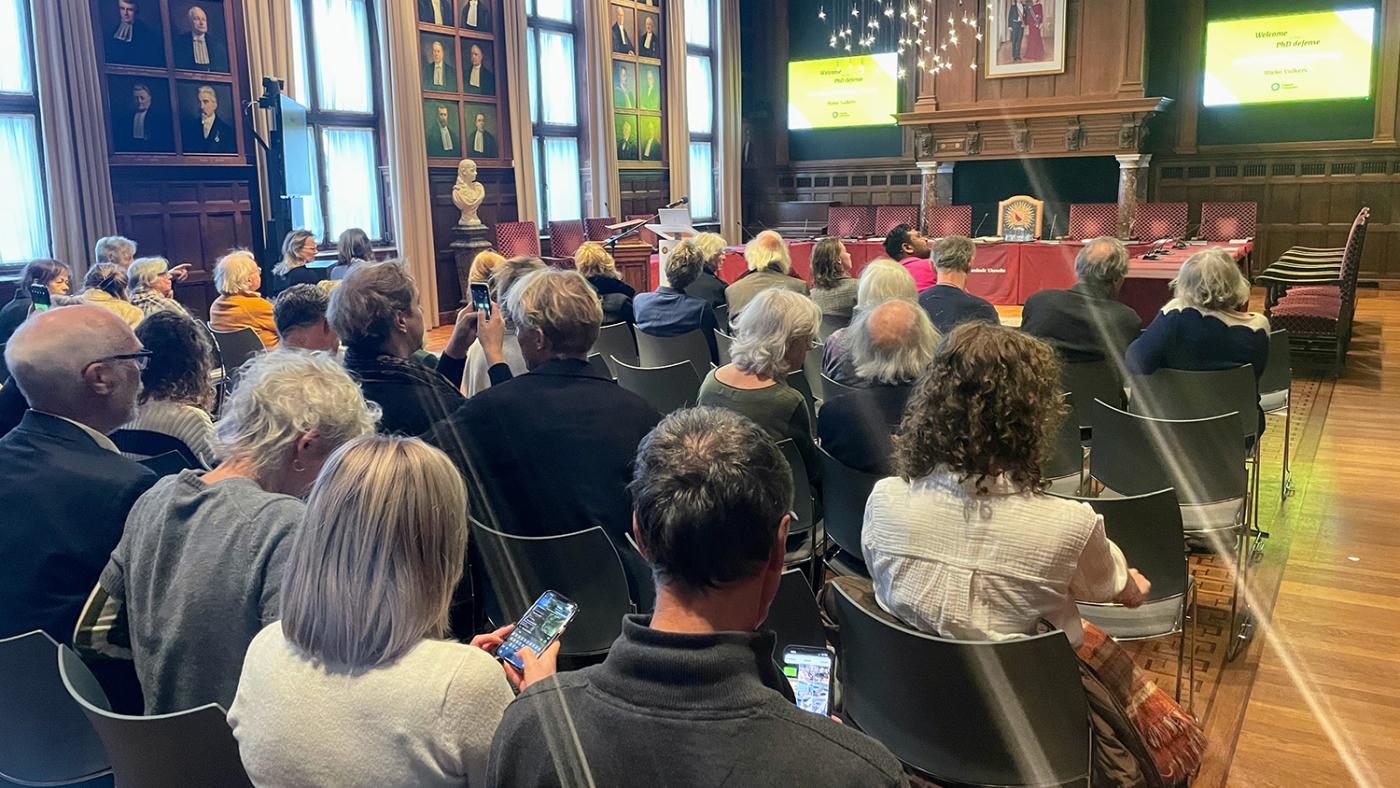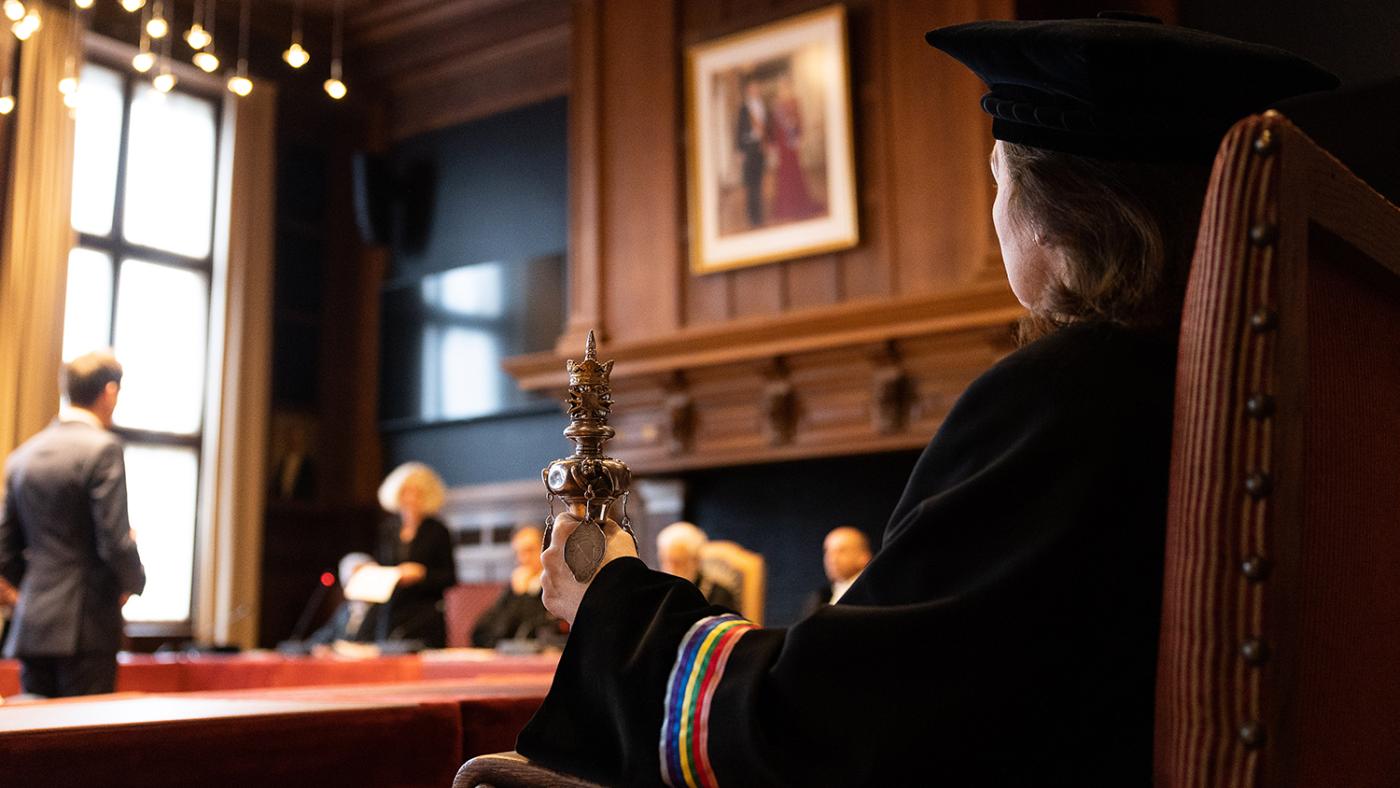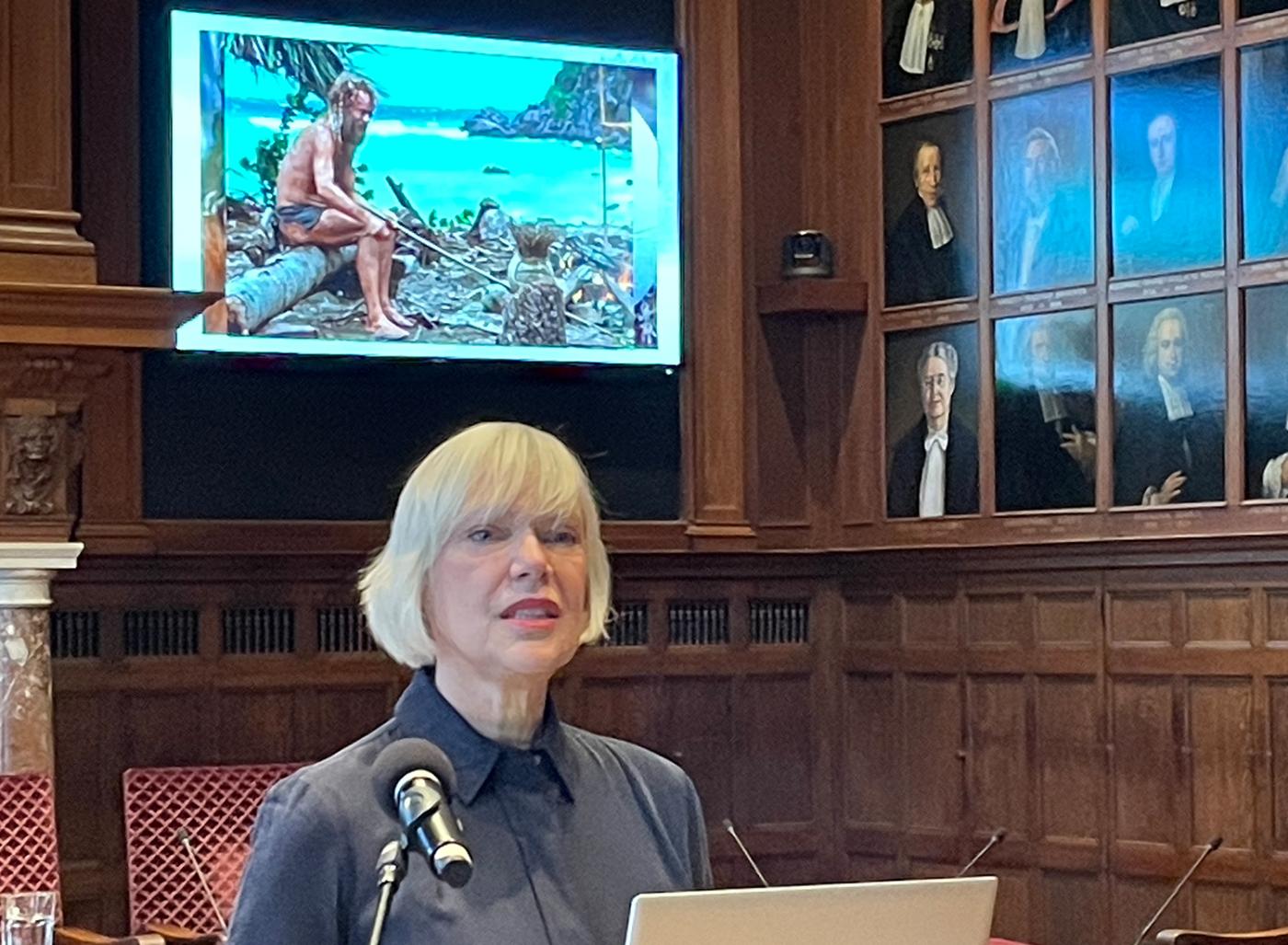After years of insistence
UU makes PhD defence more accessible by explaining research in layman's terms

Friday, November 8, shortly after noon. Almost all the seats in the Senate Hall of the Utrecht University Building are occupied when beadle Suzanne van Vliet announces the arrival of external PhD candidate Mieke Vulkers. The noisy room falls silent. Vulkers takes her place behind the pulpit. “Good afternoon, everyone, and welcome to my defence. Before we get started, I will try to summarise six years of research in ten minutes.” The audience laughs. A few attendees ask if she can talk a bit louder. The atmosphere seems relaxed, as does Vulkers.
Utrecht University has offered PhD candidates the opportunity to give a short presentation in plain English or Dutch since August 26, 2024. During these presentations, PhD candidates can discuss their research with a broad audience, using layman's terms. This presentation is done right before the defence. About half of Dutch universities have offered this possibility for quite some time, but UU did not facilitate it, so it wasn't a given. Despite repeated requests from the Utrecht PhD Party (UPP), the practice never materialised. Until this year, that is.

Photo: Martine Jansen
Accessible
The three beadles, whose office is in a room adjacent to the Senate Hall, support PhD candidates in the final part of their PhD trajectory. They are jointly responsible for the logistical and organisational course of PhD defences on the day they happen. “With an average of four PhD defences each day, it is important to follow a tight schedule,” says Beadle Van Vliet. “We are constantly coordinating with each other, support services and PhD committees.”
Gitta Vink, also a beadle, explains why talking to a group of laypeople is possible now. “Other universities have more rooms they can use for PhD defences and perhaps more staff than Utrecht does. We used to have to make do with two beadles here at UU. Now, we have three, which opens up more possibilities. Besides, such a talk goes with UU's policy as UU wants to promote the accessibility of knowledge by doing away with the exclusivity of a PhD defence. Without detracting from the ceremony, of course. After all, that is important too. It is not a coincidence that the candidate wears a robe when addressing laypeople at the Senate Hall.”
PhDs appreciate that. The presentation for laypeople is optional and currently in a pilot phase. “We have only been working on this for a few months,” says Suzanne Van Vliet. “But it is a success, so we are sure the pilot will be converted into something permanent. It is just a matter of evaluating and fine-tuning things so that it will be perfect later on.” According to the beadles, most PhD candidates are excited about talking to a broad audience. This goes for both Dutch and foreign researchers and they see no difference between faculties either.

Photo: Froukje Vernooij
Without jargon
PhD candidate Rianna Anwar Sani is part of Prout, a PhD network for Utrecht. She can confirm that these presentations are popular. "We have not carried out an evaluation yet, but the feedback we have received so far is promising. PhD candidates find this presentation an asset as it offers them the opportunity to explain their research to family and friends. The defence always starts with difficult questions that are not always understandable to the audience. So, it is nice to be able to explain what you have been working on in layman's terms, without too much jargon."
It was the PhD network of Leiden University that gave Prout the join idea to join forces with UPP to bring the subject back to the attention of the Executive Board in Utrecht. "Until recently, Leiden did not have a layman's talk either, but they introduced it successfully," explains Anwar Sani. "There is now a certain urgency at universities that may not have existed before and we wanted to respond to that. That's why we approached the beadles, who were prepared to look into the possibilities. They drew up a timeline with all parties involved. By demonstrating that it was possible to do that from a technical and organisational standpoint, we've managed to make the Board agree with the pilot.”

Photo: Paul Roholl
Wilson
During her presentation, PhD candidate Vulkers mentions Wilson, the volleyball from the movie Castaway, in which Tom Hanks interprets a man who nearly drowns and then ends up on a deserted island. Thanks to a handprint with a face on it, he managed to transform the volleyball into a friend he could talk to. Wilson supports Vulkers' explanation of her research into "mythotextuality", the combination of intertextuality and mythocriticism: a tool for understanding symbols and motifs in literary texts.
"It is smart to put your research in the spotlight through a layman's talk," says Vuljers. "But I'm also doing it to be able to share my research in a way that people understand. People come to a PhD defence to celebrate your achievement more than anything, not necessarily for a 45-minute defence, which can be quite boring if you're not familiar with the field. Hopefully, the layman's talk will change that. But there is another advantage to it: I can warm up my voice ahead of the defence. My layman's talk was in Dutch while my defense will be in English. Speaking Dutch first makes me more confident and helps to get the nerves under control,” she laughs.
After eleven minutes, the presentation for laypeople is over. The room applauds her and the buzz increases again. Two women in the audience praise the talk. “Sometimes defences are difficult to follow for the uninitiated,” says one of them. “The substantive questions, the comprehensibility, the language. I think this presentation is a good addition to the defence. It's nice too. I don't understand why they couldn't do it before. My son and daughter-in-law both obtained their PhDs from the University of Chicago, where these layman's talks have existed for a long time. If the goal of science is to keep everything for a select group only, then you might as well not invite the public. But if you want to be more open, this is the way.”
Vulkers and the paranymphs are waiting for the defence. Bells ring to announce the arrival of the board of examiners. The audience is ready.